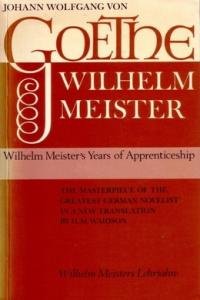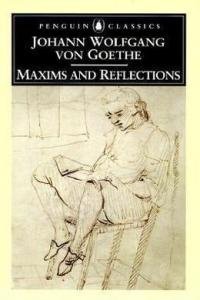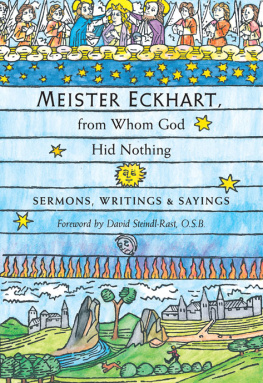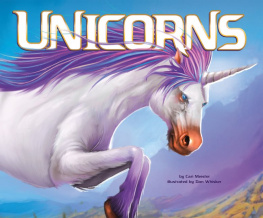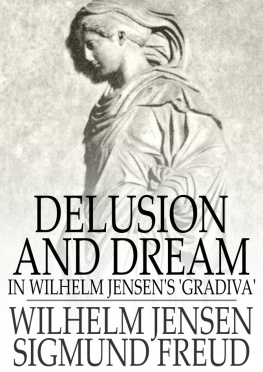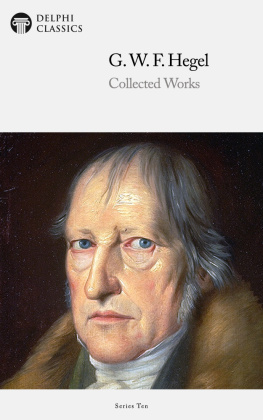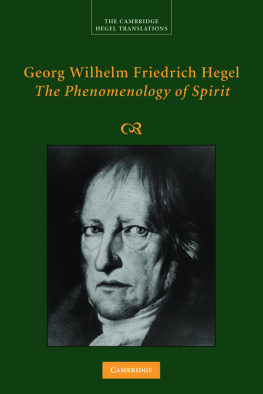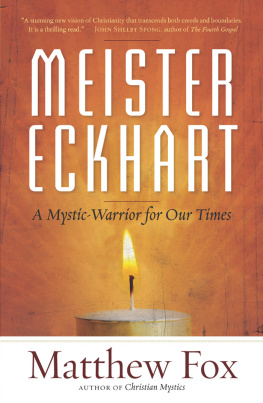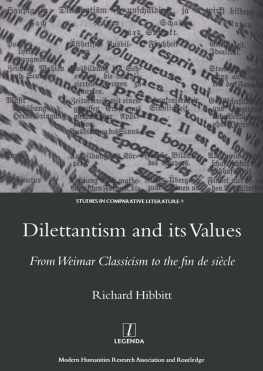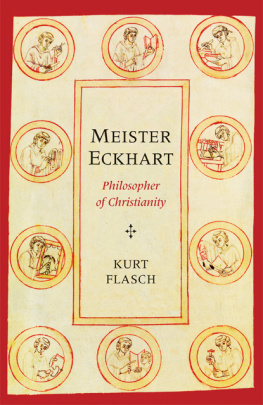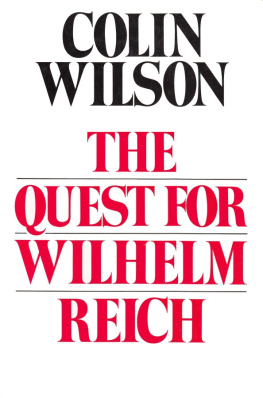Iogann Gete - Wilhelm Meister's Apprenticeship
Here you can read online Iogann Gete - Wilhelm Meister's Apprenticeship full text of the book (entire story) in english for free. Download pdf and epub, get meaning, cover and reviews about this ebook. year: 2018, publisher: epubBooks Classics, genre: Prose. Description of the work, (preface) as well as reviews are available. Best literature library LitArk.com created for fans of good reading and offers a wide selection of genres:
Romance novel
Science fiction
Adventure
Detective
Science
History
Home and family
Prose
Art
Politics
Computer
Non-fiction
Religion
Business
Children
Humor
Choose a favorite category and find really read worthwhile books. Enjoy immersion in the world of imagination, feel the emotions of the characters or learn something new for yourself, make an fascinating discovery.
- Book:Wilhelm Meister's Apprenticeship
- Author:
- Publisher:epubBooks Classics
- Genre:
- Year:2018
- Rating:3 / 5
- Favourites:Add to favourites
- Your mark:
- 60
- 1
- 2
- 3
- 4
- 5
Wilhelm Meister's Apprenticeship: summary, description and annotation
We offer to read an annotation, description, summary or preface (depends on what the author of the book "Wilhelm Meister's Apprenticeship" wrote himself). If you haven't found the necessary information about the book — write in the comments, we will try to find it.
Wilhelm Meister's Apprenticeship — read online for free the complete book (whole text) full work
Below is the text of the book, divided by pages. System saving the place of the last page read, allows you to conveniently read the book "Wilhelm Meister's Apprenticeship" online for free, without having to search again every time where you left off. Put a bookmark, and you can go to the page where you finished reading at any time.
Font size:
Interval:
Bookmark:
Wilhelm Meister's Apprenticeship
Johann Wolfgang von Goethe
Translator's Preface
TO THE FIRST EDITION OF MEISTER'S APPRENTICESHIP [Edinburgh, 1824]
Whether it be that the quantity of genius among ourselves and the French, and the number of works more lasting than brass produced by it, have of late been so considerable as to make us independent of additional supplies; or that, in our ancient aristocracy of intellect, we disdain to be assisted by the Germans, whom, by a species of second sight, we have discovered, before knowing any thing about them, to be a tumid, dreaming, extravagant, insane race of mortals,certain it is, that hitherto our literary intercourse with that nation has been very slight and precarious. After a brief period of not too judicious cordiality, the acquaintance on our part was altogether dropped: nor, in the few years since we partially resumed it, have our feelings of affection or esteem been materially increased. Our translators are unfortunate in their selection or execution, or the public is tasteless and absurd in its demands; for, with scarcely more than one or two exceptions, the best works of Germany have lain neglected, or worse than neglected: and the Germans are yet utterly unknown to us. Kotzebue still lives in our minds as the representative of a nation that despises him; Schiller is chiefly known to us by the monstrous production of his boyhood; and Klopstock by a hacked and mangled image of his "Messiah," in which a beautiful poem is distorted into a theosophic rhapsody, and the brother of Virgil and Racine ranks little higher than the author of "Meditations among the Tombs."
But of all these people there is none that has been more unjustly dealt with than Johann Wolfgang von Goethe. For half a century the admirationwe might almost say the idolof his countrymen, to us he is still a stranger. His name, long echoed and reechoed through reviews and magazines, has become familiar to our ears; but it is a sound and nothing more: it excites no definite idea in almost any mind. To such as know him by the faint and garbled version of his "Werther," Goethe figures as a sort of poetic Heraclitus; some woebegone hypochondriac, whose eyes are overflowing with perpetual tears, whose long life has been spent in melting into ecstasy at the sight of waterfalls and clouds, and the moral sublime, or dissolving into hysterical wailings over hapless lovestories, and the miseries of human life. They are not aware that Goethe smiles at this performance of his youth, or that the German Werther, with all his faults, is a very different person from his English namesake; that his Sorrows are in the original recorded in a tone of strength and sarcastic emphasis, of which the other offers no vestige, and intermingled with touches of powerful thought, glimpses of a philosophy deep as it is bitter, which our sagacious translator has seen proper wholly to omit. Others, again, who have fallen in with Retsch's "Outlines" and the extracts from "Faust," consider Goethe as a wild mystic, a dealer in demonology and osteology, who draws attention by the aid of skeletons and evil spirits, whose excellence it is to be extravagant, whose chief aim it is to do what no one but himself has tried. The tyro in German may tell us that the charm of "Faust" is altogether unconnected with its preternatural import; that the work delineates the fate of human enthusiasm struggling against doubts and errors from within, against scepticism, contempt, and selfishness from without; and that the witchcraft and magic, intended merely as a shadowy frame for so complex and mysterious a picture of the moral world and the human soul, are introduced for the purpose, not so much of being trembled at as laughed at. The voice of the tyro is not listened to; our indolence takes part with our ignorance; "Faust" continues to be called a monster; and Goethe is regarded as a man of "some genius," which he has perverted to produce all manner of misfashioned prodigies,things false, abortive, formless, Gorgons and hydras, and chimeras dire.
Now, it must no doubt be granted, that, so long as our invaluable constitution is preserved in its pristine purity, the British nation may exist in a state of comparative prosperity with very inadequate ideas of Goethe; but, at the same time, the present arrangement is an evil in its kind,slight, it is true, and easy to be borne, yet still more easy to be remedied, and which, therefore, ought to have been remedied ere now. Minds like Goethe's are the common property of all nations; and, for many reasons, all should have correct impressions of them.
It is partly with the view of doing something to supply this want, that "Wilhelm Meister's Lehrjahre" is now presented to the English public. Written in its author's fortyfifth year, embracing hints or disquisitions on almost every leading point in life and literature, it affords us a more distinct view of his matured genius, his manner of thought, and favorite subjects, than any of his other works. Nor is it Goethe alone whom it portrays: the prevailing taste of Germany is likewise indicated by it. Since the year 1795, when it first appeared at Berlin, numerous editions of "Meister" have been printed: critics of all ranks, and some of them dissenting widely from its doctrines, have loaded it with encomiums; its songs and poems are familiar to every German ear; the people read it, and speak of it, with an admiration approaching in many cases to enthusiasm.
That it will be equally successful in England, I am far indeed from anticipating. Apart from the above considerations,from the curiosity, intelligent or idle, which it may awaken,the number of admiring, or even approving, judges it will find can scarcely fail of being very limited. To the great mass of readers, who read to drive away the tedium of mental vacancy, employing the crude phantasmagoria of a modern novel, as their grandfathers employed tobacco and diluted brandy, "Wilhelm Meister" will appear beyond endurance weary, flat, stale, and unprofitable. Those, in particular, who take delight in "King Cambyses' vein," and open "Meister" with the thought of "Werther" in their minds, will soon pause in utter dismay; and their paroxysm of dismay will pass by degrees into unspeakable contempt. Of romance interest there is next to none in "Meister;" the characters are samples to judge of, rather than persons to love or hate; the incidents are contrived for other objects than moving or affrighting us; the hero is a milksop, whom, with all his gifts, it takes an effort to avoid despising. The author himself, far from "doing it in a passion," wears a face of the most still indifference throughout the whole affair; often it is even wrinkled by a slight sardonic grin. For the friends of the sublime, then,for those who cannot do without heroical sentiments, and "moving accidents by flood and field,"there is nothing here that can be of any service.
Nor among readers of a far higher character, can it be expected that many will take the praiseworthy pains of Germans, reverential of their favorite author, and anxious to hunt out his most elusive charms. Few among us will disturb themselves about the allegories and typical allusions of the work; will stop to inquire whether it includes a remote emblem of human culture, or includes no such matter; whether this is a light, airy sketch of the development of man in all his endowments and faculties, gradually proceeding from the first rude exhibitions of puppets and mountebanks, through the perfection of poetic and dramatic art, up to the unfolding of the principle of religion, and the greatest of all arts,the art of life,or is nothing more than a bungled piece of patchwork, presenting in the shape of a novel much that should have been suppressed entirely, or at least given out by way of lecture. Whether the characters do or do not represent distinct classes of men, including various stages of human nature, from the gay, material vivacity of Philina to the severe moral grandeur of the uncle and the splendid accomplishment of Lothario, will to most of us be of small importance; and the everlasting disquisitions about plays and players, and politeness and activity, and art and nature, will weary many a mind that knows not and heeds not whether they are true or false. Yet every man's judgment is, in this free country, a lamp to himself: whoever is displeased will censure; and many, it is to be feared, will insist on judging "Meister" by the common rule, and, what is worse, condemning it, let Schlegel bawl as loudly as he pleases. "To judge," says he, "of this book,new and peculiar as it is, and only to be understood and learned from itself, by our common notion of the novel, a notion pieced together and produced out of custom and belief, out of accidental and arbitrary requisitions,is as if a child should grasp at the moon and stars, and insist on packing them into its toybox."[1] Unhappily the most of us have boxes, and some of them are very small.
Font size:
Interval:
Bookmark:
Similar books «Wilhelm Meister's Apprenticeship»
Look at similar books to Wilhelm Meister's Apprenticeship. We have selected literature similar in name and meaning in the hope of providing readers with more options to find new, interesting, not yet read works.
Discussion, reviews of the book Wilhelm Meister's Apprenticeship and just readers' own opinions. Leave your comments, write what you think about the work, its meaning or the main characters. Specify what exactly you liked and what you didn't like, and why you think so.

